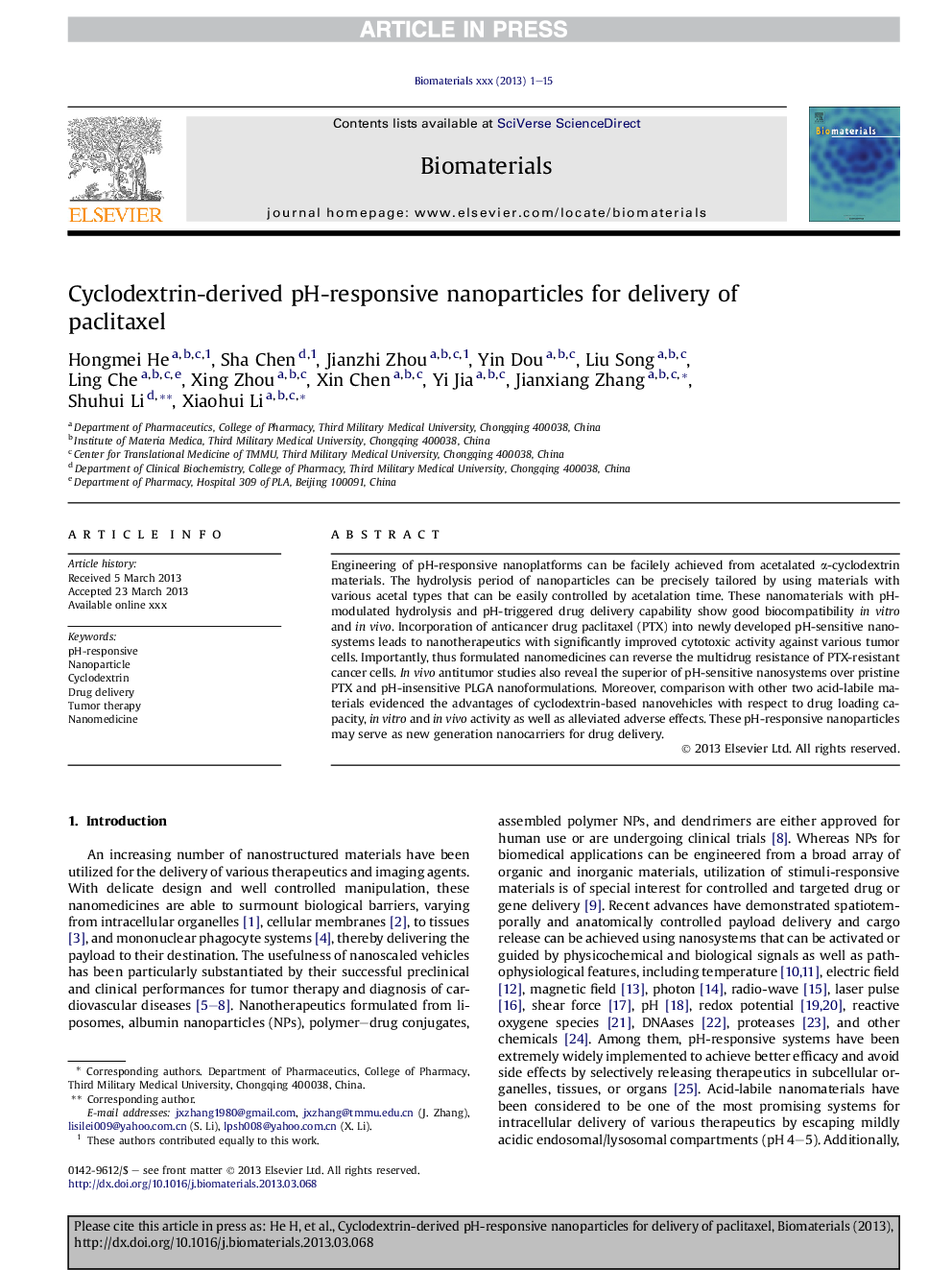| Article ID | Journal | Published Year | Pages | File Type |
|---|---|---|---|---|
| 10229041 | Biomaterials | 2013 | 15 Pages |
Abstract
Engineering of pH-responsive nanoplatforms can be facilely achieved from acetalated α-cyclodextrin materials. The hydrolysis period of nanoparticles can be precisely tailored by using materials with various acetal types that can be easily controlled by acetalation time. These nanomaterials with pH-modulated hydrolysis and pH-triggered drug delivery capability show good biocompatibility in vitro and in vivo. Incorporation of anticancer drug paclitaxel (PTX) into newly developed pH-sensitive nanosystems leads to nanotherapeutics with significantly improved cytotoxic activity against various tumor cells. Importantly, thus formulated nanomedicines can reverse the multidrug resistance of PTX-resistant cancer cells. In vivo antitumor studies also reveal the superior of pH-sensitive nanosystems over pristine PTX and pH-insensitive PLGA nanoformulations. Moreover, comparison with other two acid-labile materials evidenced the advantages of cyclodextrin-based nanovehicles with respect to drug loading capacity, in vitro and in vivo activity as well as alleviated adverse effects. These pH-responsive nanoparticles may serve as new generation nanocarriers for drug delivery.
Related Topics
Physical Sciences and Engineering
Chemical Engineering
Bioengineering
Authors
Hongmei He, Sha Chen, Jianzhi Zhou, Yin Dou, Liu Song, Ling Che, Xing Zhou, Xin Chen, Yi Jia, Jianxiang Zhang, Shuhui Li, Xiaohui Li,
